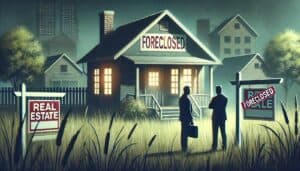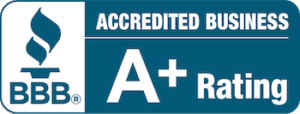When banks do not pay mortgage loans, some of them can get money by selling the taken over assets, foreclosure may result in profit to banking institutions but caution must be taken into account regarding various risks present.
The main aim of banks by filing foreclosure notices is to retake property from the second mortgage holder that is securing a mortgage so they sell it in order to recover unpaid loan balances. For instance if the foreclosed property is sold at a higher price than total outstanding loan amount, there could be some extra cash inflow during this process.
Despite such advantages which accompany this kind of an investment opportunity there are numerous associated dangers too – conditions or market circumstances usually cause low prices on foreclosed houses that may not even equal the original mortgage. The whole process could turn out to be expensive because it involves payments like legal fees, property taxes, maintenance and even administrative charges.
Therefore, Banks should make sure they manage foreclosed properties well if they want to sell them off or when they should sell them at what cost. Properly managed foreclosures can minimize losses and sometimes offer an avenue through which a bank can earn profits from its operations.
Understanding the Foreclosure Process and Its Impact on Banks
The foreclosure process begins when a mortgage borrower fails to pay their dues and therefore a homeowner defaults on their mortgage payments. To recover the loan balance that has not been paid back, banks as the mortgage lenders start the foreclosure process. To execute this process; notifying the borrower, filing a lawsuit and possessing the property in case the borrower fails to pay are some of the crucial steps involved in initiating foreclosure proceedings.
There is a significant impact on the financial health of banks by foreclosures. Usually this process takes time which means it also takes a lot of money since people who are involved have to consult with lawyers as well as go to court frequently.
Additionally, banks should maintain these properties properly by managing them after foreclosures while waiting for potential buyers or tenants before they can sell them.
Foreclosed Property

A foreclosed property is a house that was taken by a mortgage lender from a homeowner who failed to pay.
Usually, when mortgage borrowers are unable to repay their loans, lenders institute foreclosure proceedings so as to recover the unpaid loan balances. This eventually results in the lender acquiring ownership of the property, which may either be sold through a real estate agent or auctioned by foreclosure.
The foreclosure process often results in the sale of distressed homes at prices which are well below those prevailing for similar units. By doing so, these premises usually attract real estate investors and bargain seekers. However, it is important to note that purchasing such property is not without risks as it may have undisclosed repair needs; entail legal wrangles or involve other financial obligations on it. Therefore, buyers should conduct due diligence on them in order to avoid making wrong decisions regarding their investments.
To propagate those homes confiscated for non-payment; banks and other mortgage providers grapple with a number of challenges. Such organizations have to ascertain the safety and maintenance of such properties, keep them under legal wraps among other clerical activities as well as sell them promptly to cut down on the holding costs.
However, selling prices do not always cover the remaining borrowed funds even though they may be used for that purpose after disposing them off. This is because when lenders efficiently manage these homes sporadically they may have extra money to help to contain losses, therefore maintaining their financial health.
The Economics of Foreclosed Properties
Banks should take into account several factors when it comes to the economics of foreclosed properties.
After a bank has foreclosed on a property, it becomes the owner and has to put it up for sale to recover the remaining loan balance.
Foreclosed properties are usually sold through foreclosure or public auction where people can bid for them.
The information below describes how various aspects of foreclosure economics are determined by some critical elements:
- Market price of the building during sale season
- Apartment status and repairs
- Availability of such properties at city level and their demand
- Charges for maintenance and selling off
- Property agents and potential clients’ interest
For this reason, they have to carefully consider these factors before deciding on how to go about selling these properties without losing everything in the process.
The Risks and Rewards of Foreclosures for Banks
Foreclosures yield different aspects of good and harm for the banks. Banks may quickly gain by selling a property that someone did not fully pay a loan for. Indeed, banks can opt to sell foreclosed property so that they recover at least some or all the unpaid balance.
Nonetheless, such an approach, if misapplied, is very destructive. Some premises may not have reached the amount at which the loan was settled; this is a major loss to the banks.
Also foreclosed properties at times they need maintenance services and repairs this adds up to the costs. The process of foreclosure in itself is expensive inclusive of legal charges and transaction costs.
However, optimal foreclosure management serves to mitigate bank losses and sometimes earn profits from excess proceeds from such sales. Foreclosure entails various trade-offs that banks must carefully balance in order to optimize this activity.
Managing Foreclosed Properties to Minimize Losses
In order to minimize its losses, it is important for a bank to manage properties that have been foreclosed upon well.
Whenever a bank forecloses on a property they take over the responsibility of maintaining it, which involves carrying out repairs, cleaning, while making sure that it is protected and can be sold when the need arises.
To lessen the losses, banks may:
- Inspect properties regularly to eliminate potential issues quickly
- Engage expert property management services for everyday care and maintenance needs
- Cooperate with seasoned real estate agents when setting the price and advertising it
- Repair what needs fixing for the house’ attractiveness as well as an increase of its value in the market.
- Speedy disposal means minimizing holding costs and enabling an early recovery of capital.
Through these moves, they shall be capable of managing their repossessed assets more effectively, thus reducing the economic ramifications left behind by such actions.
Tax Implications of Foreclosures for Banks
Banks which carry foreclosures are subjected to significant tax implications. Any gain realized by the bank after selling repossessed property is subject to tax.
This situation requires the bank to make a prudent financial plan that ensures compliance with both federal and state tax laws.
Another thing is that in cases where the amount received from selling the property is less than the remaining loan balance or second mortgage, there could be financial losses suffered by such banks.
This acts as a relief because losses of this nature made during foreclosures are allowed as deductions from income on which taxes are paid. Therefore, it is important to account properly for these losses so as to minimize tax liabilities on them.
When it comes to maintaining and disposing of these properties, banks must factor in certain costs. This is a strategy through which the financial institutions can claim deductions on their taxes by treating such expenses as deductible expenses from the overall tax impact.
Banks should engage tax professionals who can assist them in coping with such intricacies and attaining a true financial position.
Best Practices for Banks to Profit from Foreclosures

Among the practices that the banks may use to reap more benefits from the foreclosures is adopting an approach that is consistent with a list of the best methods. There is a need for thorough property appraisals as this will make it easy for you to come up with accurate market values hence competitive prices that attract buyers faster.
Additionally, effective marketing strategies are necessary. For one to succeed, they need to reach out to many people hence; various channels like online listing services should be used so that even the real estate agents could be helpful. As a result, chances of selling the properties at a lower price or higher prices will increase; time wasted during the hold period shall reduce as well as the cost of holding properties due to this reason.
Another thing worth considering includes making the processes involved in foreclosures and selling them easier. As soon as the banks can cut down on the time as well as the cost involved in conducting such activities, the closer they are to streamlining foreclosure and sale processes.
This can be facilitated through collaboration with experienced professionals like agents that deal with the real estate market, estates or property managers among others who help boost the bank’s gain from seizing real property.
Mortgage Payments

A borrower’s mortgage is typically and regularly made to a mortgage lender in order to repay a home loan.
These values mostly comprise of principal, whereby principal contributes towards reducing the balance during repayment period while interest covers costs that were incurred as a result of borrowing.
Terms on how much could be paid at any given time as well as how frequently such amounts should be paid are provided for in mortgage loan agreements which include interest rate charged over the period, the period it may take before the loan matures as well as possible expenses among others.
The moment chosen by the homeowner to pay back these loans should always be observed in order to avoid problems. Postponing or missing these periods always attract penalties that are negative to one’s credit score. Where a borrower does not make a mortgage for long periods, the creditor may opt to foreclose the property and get back his or her own money from it by selling such real estate.
To any individual intending to keep increasing both his investment and credit score, he must be making his mortgage payments on a regular and timely manner.
On the other hand, lenders value mortgage payments so much that they are seen as the ultimate source of liquidity as well as prosperity. Responsible repayments will also ensure that money keeps on flowing thereby enabling them to make new advances without any complications at all times.
This way if you consist of making payments on your mortgage, then it would only minimize the possibility of loan default which is very good for the credit report of the lender and hence real estate generally.
Mortgage Loan
A mortgage is a type of loan designed specifically for the purchase of real estate; it is similar to any other type of loan except that it is used to buy property. In this type of loan arrangement, a borrower is given money by a lender who then uses the borrower’s property as collateral.
A loan agreement spells out terms such as interest rate and period as well as monthly payable amounts among other details like principal amounts which are all included in the agreement document itself. These determine its costs and monthly income requirements on their part from time immemorial it has been like this.
Fixed rate mortgages maintain stability because they have an equal amount of payment as well as interest rates throughout only the amount of time span for which they were agreed upon while on the other hand adjustable rate mortgages or ARMs fluctuate depending on market situations thus affecting what people pay at any one point of payment.
Several steps must be taken before someone applies for credit . These include pre-approval, underwriting, and closing. Lenders use pre-approval to determine the amount that one qualifies for by looking at the creditworthiness, income, and amount of debt a given person has borrowed. Through the underwriting process, a financial status of the borrower is closely analyzed together with property value.
The borrower then signs documents during the closing meeting that actually transfer them the property should they be found to have qualified for it. Throughout these activities, potential borrowers usually depend on their Strong matches as well as real estate brokers plus financial planners in order to successfully complete applying for it.
Conclusion
All in all, foreclosures pose a mixture of risks and benefits that may end up leaving banks with some profits.
Foreclosure enables unrecouped loan balances to be taken back by banks and sometimes make money from selling off such properties illegally repossessed. But such financial consequences might end up being significant given challenges related to payments of legal fees as well as maintenance while thinking about an eventual market value or decrease.
To all banks, said knowledge about how foreclosure procedures work or even management practices concerning that type of property is a matter of importance during their operations at hand.
The implementation of other strategies like having reasonable evaluations done on their properties before they can go on market, employing efficient promotional techniques amongst others will go a long way towards averting losses and enhancing possibilities for gain in terms of foreclosure sale. Adding on tax professionals into consideration when dealing with tax implications of foreclosure ensures compliance and good finance handling
For this reason, a comprehensive approach that takes into account the pros and cons of foreclosures vis-à-vis the practicality and potential benefits is important to the banking institutions. With more information on their side and being active, banks can therefore confidently traverse through the complexities that attend foreclosure activities thereby protecting themselves financially and exploiting those opportunities that would see them reclaim or earn from these properties sold due to non-payment.





























